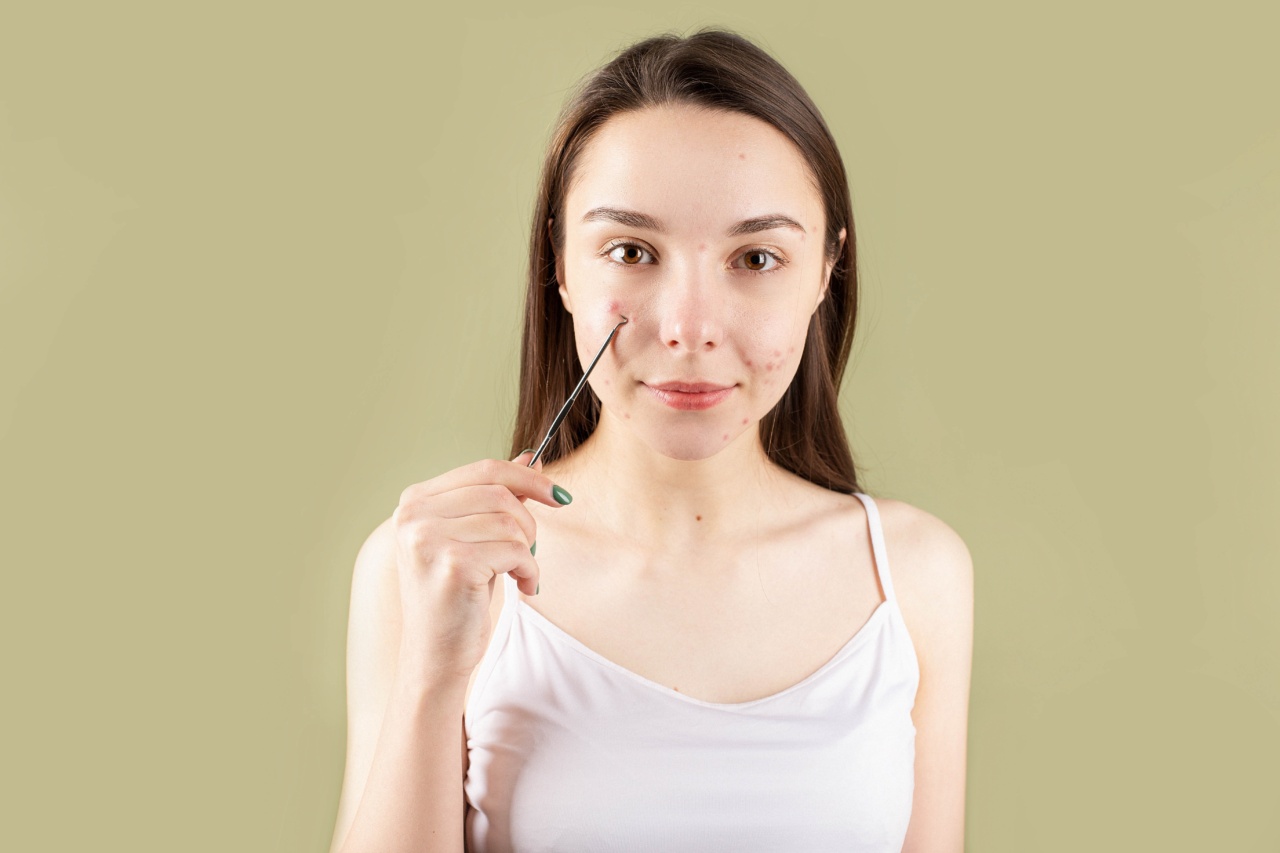Acne is a common skin condition that affects both men and women, but men tend to have more severe cases. It can be embarrassing and frustrating to deal with persistent breakouts, but there are several effective treatment options available.
In this article, we will discuss some of the most popular and proven treatments for men’s acne.
1. Topical Medications
One of the first lines of defense against acne is topical medications. These can be applied directly to the skin to target specific acne-causing bacteria and reduce inflammation.
Common ingredients found in over-the-counter topical treatments include salicylic acid, benzoyl peroxide, and retinoids. Prescription-strength medications like tretinoin and adapalene are also available and can be more effective in severe cases.
2. Oral Medications
In more severe cases of acne, oral medications may be necessary. These medications work from within to reduce sebum production, kill bacteria, and decrease inflammation.
Antibiotics like doxycycline and isotretinoin (Accutane) are commonly prescribed for severe acne. However, it is important to note that these medications may have side effects and require close monitoring by a dermatologist.
3. Laser and Light Therapy
Laser and light therapies have gained popularity in recent years as effective treatments for acne. These treatments use specific wavelengths of light to kill acne-causing bacteria and reduce oil production.
They can also help fade acne scars and improve overall skin texture. Laser and light therapy sessions are typically performed by dermatologists and may require multiple sessions for optimal results.
4. Chemical Peels
Chemical peels involve the application of a chemical solution to the skin that causes it to exfoliate and peel off. This process helps to remove dead skin cells, unclog pores, and reduce acne.
There are different types of chemical peels available, ranging from superficial to deep peels. Superficial peels can be done at home with over-the-counter products, while deeper peels should be performed by a dermatologist.
5. Proper Skincare Routine
Establishing a proper skincare routine is essential for managing acne.
It involves cleansing the skin twice a day with a mild cleanser, exfoliating regularly to remove dead skin cells, and moisturizing with non-comedogenic products to keep the skin hydrated. Additionally, using an oil-free sunscreen can protect the skin from harmful UV rays without clogging the pores.
6. Dietary Changes
While diet alone may not be the root cause of acne, certain foods can exacerbate breakouts. Incorporating a balanced diet with plenty of fruits, vegetables, whole grains, and lean proteins can promote healthier skin.
Limiting the consumption of processed foods, sugar, and dairy products may also help reduce acne symptoms. It is important to note that individual responses to dietary changes may vary.
7. Stress Management
Stress has been linked to acne flare-ups, as it can trigger hormonal imbalances and stimulate oil production.
Engaging in stress-reducing activities like exercise, meditation, and deep breathing exercises can help manage stress levels and potentially reduce acne breakouts. Getting enough sleep and maintaining a consistent sleep schedule is also important for overall skin health.
8. Regular Dermatologist Visits
Regular visits to a dermatologist are crucial for effectively managing acne. A dermatologist can evaluate the severity of the acne, determine the most suitable treatment plan, and monitor progress.
They may also perform procedures like extractions or injections to speed up the healing process. It is important to follow the dermatologist’s advice and not try to pop or squeeze acne lesions at home, as this can lead to scarring.
9. Over-the-Counter Acne Products
There are numerous over-the-counter acne products available that can help manage mild to moderate acne. These include cleansers, spot treatments, and face masks.
It is important to read product labels carefully and choose products containing active ingredients like salicylic acid or benzoyl peroxide. However, if over-the-counter products do not show improvement after a few weeks, it is advisable to consult a dermatologist.
10. Prescription-strength Topical Treatments
In addition to over-the-counter topical treatments, dermatologists can prescribe stronger formulations for men with persistent acne. These may include topical antibiotics, combination treatments, or stronger retinoids.
Prescription-strength treatments can provide more targeted and effective solutions for stubborn acne that has not responded well to other treatments.































